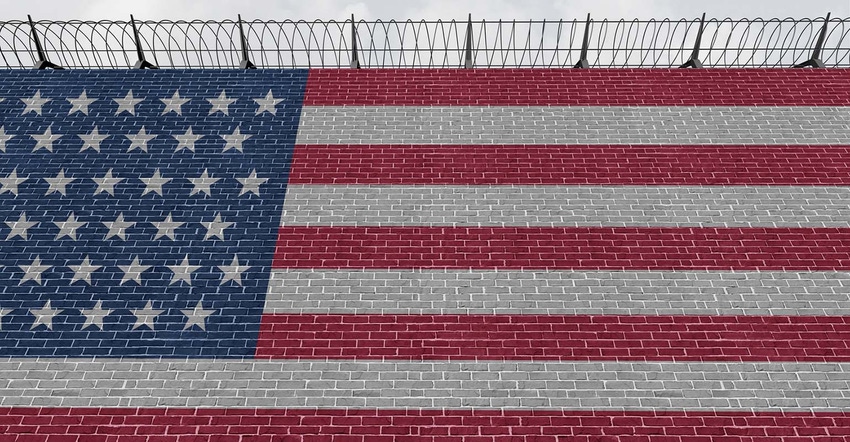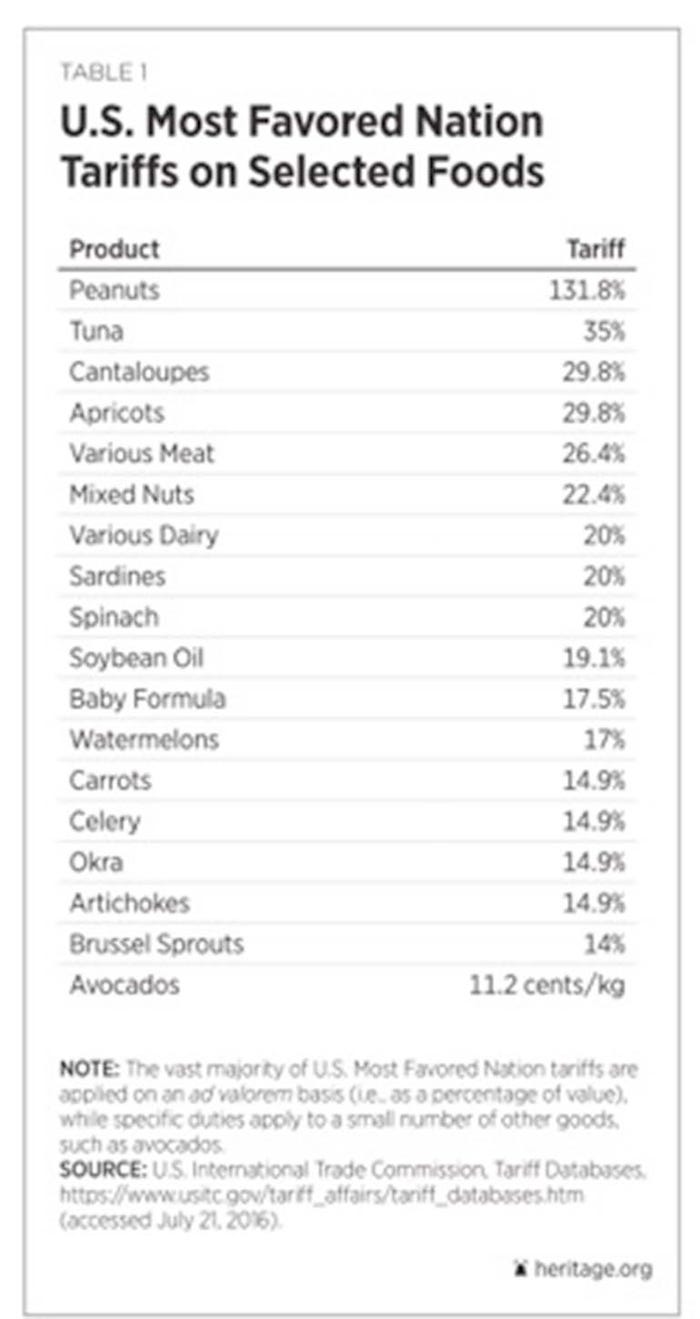
“Farmers, ranchers, and consumers derive immense benefits from free trade in agriculture...”
Heritage Foundation’s Blueprint for Agricultural Policy is most supportive of U.S. agricultural exports, but claims “…the U.S. farm sector has benefited from open trade yet still suffers from rampant protectionism.” If you read no other section of the Heritage report, I recommend strongly you read Section 7 which provides an excellent summary regarding benefits of trade and some criticisms.
Section 7 has excellent statistics regarding the economic benefits of free trade in agriculture which we all need to know by heart. USDA’s Economic Research Service (ERS) states $150 billion in U.S. agricultural exports in 2014 created approximately $191 billion in economic activity and over a million jobs. With the North American Free Trade Agreement (NAFTA) between 2004-2014 trade increased from $24 billion to $59 billion. USDA declares U.S. agricultural exports to Canada and Mexico have expanded by 59% while exports to the rest of the countries in the world “…grew only 10%.”
Heritage believes the Trans-Pacific Partnership (TPP) would be most beneficial because “…the United States would eliminate about two-thirds of its more restrictive tariffs (including all tariffs above 5 percent and specific tariffs) as soon as the TPP enters into force, and most of the higher tariffs to be eliminated immediately are in agriculture (such as vegetables and beans)…” (Note: the Heritage report was written in Sept. 2016; the U.S. removed itself from TPP in Jan. 2017).
High trade barriers?
Heritage uses the World Trade Organization (WTO) numbers to show the United States actually maintains high barriers to agricultural products coming into our country. The WTO says the U.S. imposes a 4.72% average tariff on all agricultural products whereas all other countries impose at 3.56% average tariff. I thought U.S. tariffs were low but Heritage maintains “…United States still maintains high barriers to trade in many agricultural products.”
There are some interesting numbers. The International Trade Commission is cited as claiming there is a 5% or higher tariff on 1,427 agricultural products imported into the U.S. Heritage cites two authorities which claim 240 of the products are cotton, wool, textiles and fabrics. Apparently there are tariffs on 579 basic food products coming into the U.S.
Heritage cites the WTO, which says that the U.S. imposes “…tariffs on agricultural products that are substantially higher than the average U.S. tariff on non-agricultural imports.”
Heritage has a chart on page 99 which lists tariffs U.S. imposes according to the U.S. International Trade Commission. Here are a few examples. If you are exporting peanuts to the U.S, your tariff is 131.8%. This tariff is applied on an ad valorem basis (percentage of value). Other interesting items with high tariffs include tuna at 35%, various meat products 26.4%, soybean oil 19.1%, and Brussels sprouts have a 14% tariff.

Costly sugar
Another product in the news last week is sugar. Heritage claims the U.S. has a restrictive tariff rate quota system (TRQ) on raw cane, refined sugar and blended sugar syrups. The Blueprint claims sugar has cost the American consumer $1.6 billion from 2012 to 2017. A TRQ means only a certain amount of a product can come in at one rate and when the quota is reached high tariffs apply. The U.S. cheese market is also highly protected with high tariffs and restrictive TRQs. For example, 131 out of 157 cheese products being imported are subjected to a TRQ which according to Heritage costs the U.S. consumer each year approximately $50 million.
Heritage not only blames the United States for “heavily distorting” agricultural trade, but also blames many other countries.
Heritage does have useful suggestions on how the U.S. should improve efforts to reform the U.S. trade system and global trade barriers. It believes the U.S. needs to get its own house in order and not distort agricultural markets through trade barriers and subsidies. It believes Congress should pass legislation eliminating all tariffs and TRQs on agricultural products and inputs.
Heritage claims the U.S. has not been nearly aggressive enough in going after other countries on not meeting their obligations. In fact, Heritage says the U.S. needs to go on the offense. It declares “Unilateral reform of U.S. agricultural trade policy not only would produce tangible economic benefits, but also would put the United States and American farmers and ranchers in a much better position to confront other countries’ trade barriers and subsidies aggressively.”
Heritage believes the U.S. should stop pussyfooting around and not be hesitant to litigate other countries’ trade barriers and subsidies. AMEN!
The opinions of the author are not necessarily those of Farm Futures or Penton Agriculture.
About the Author(s)
You May Also Like




